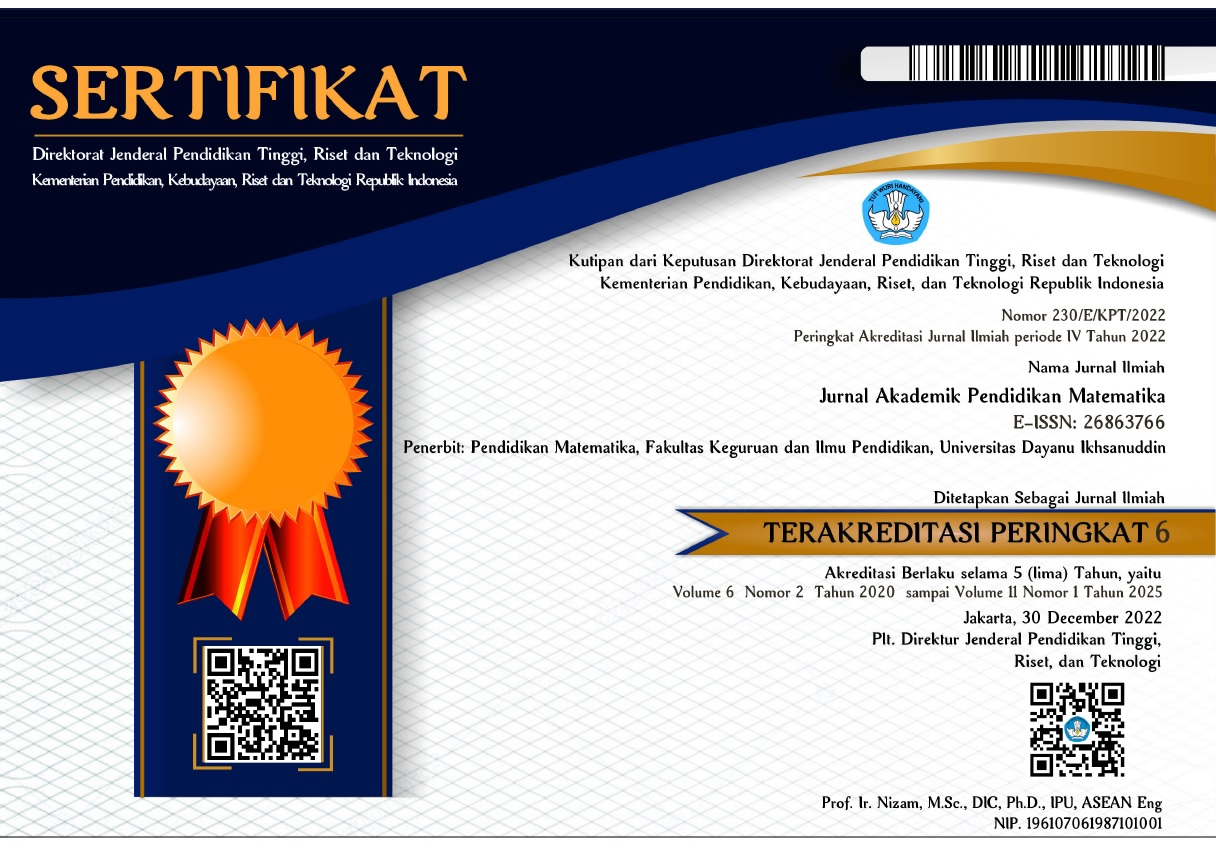Application of the Make A Match Type Cooperative Learning Model to Improve Mathematics Learning Achievement of Elementary School Students
DOI:
https://doi.org/10.55340/japm.v8i1.696Keywords:
cooperative learning model type make a match, learning achievementAbstract
The problem formulation in this study is: (1) How to apply the Make A Match cooperative learning model to improve math learning achievement “Mathematics Measurement Materials” in students Class VI Elementary School 45 Buton ? (2) How to improve achievement of learning “Mathematics Measurement Materials” using cooperative learning model type Make A Match in students Class VI Elementary School 45 Buton ?". In accordance with the type of research chosen, namely action research, this study uses a research model from Kemmis and Taggart that is in the form of a spiral from one cycle to the next. Each cycle includes planning, action, observation, and reflection.The next step in the next cycle is revised planning, action, observation and reflection. Before entering cycle I, a preliminary action is carried out in the form of problem identification. From the results of the research conducted obtained the results that the completion of learning cycle I (54%), cycle II (74%) and cycle III (94%). The conclusion in this study is (1) The application of cooperative learning model type Make A Match can improve achievement of learning “Mathematics Measurement Material” In students. Improved achievement of learning “Mathematics Measurement Materials” using cooperative learning model type Make A Match in students Class VI Elementary School 45 Buton ? cycle I (54%), cycle II (74%) and cycle III (94%).
Downloads
References
Suharsimi, Arkunto. 1987. Prosedur Penelitian : Suatu Pendekatan Praktik. Jakarta : PT. Bina Aksara.
Lie, Anita. 2002. Cooperative Learning. Mempraktikkan Cooperative Learning di Ruang-Ruang Kelas. Jakarta: PT. Grasindo.
Muhibbin Syah. 2008. Psikologi Pendidikan dengan Pendekatan Baru.Bandung: Remaja Rosdakarya.
Mujiyanto, Paulus. 2005. Pendekatan Kontekstual, Modul Pembelajaran. Batang : BKD
Satrio, Adi. 2005. Kamus Ilmiyah Populer. Visi7.
Slameto. 2003. Belajar dan Faktor-faktor Yang Mempengaruhinya,Jakarta :Rineka Cipta
Slavin, 2003, Model-model pembelajaran Kooperatif, Jakarta: Grafindo Persada.
Sunarto. 2009. Pengertian Hasil Belajar, (Online)http://sunartombs.wordpress.com, diakses 1 April 2009



























